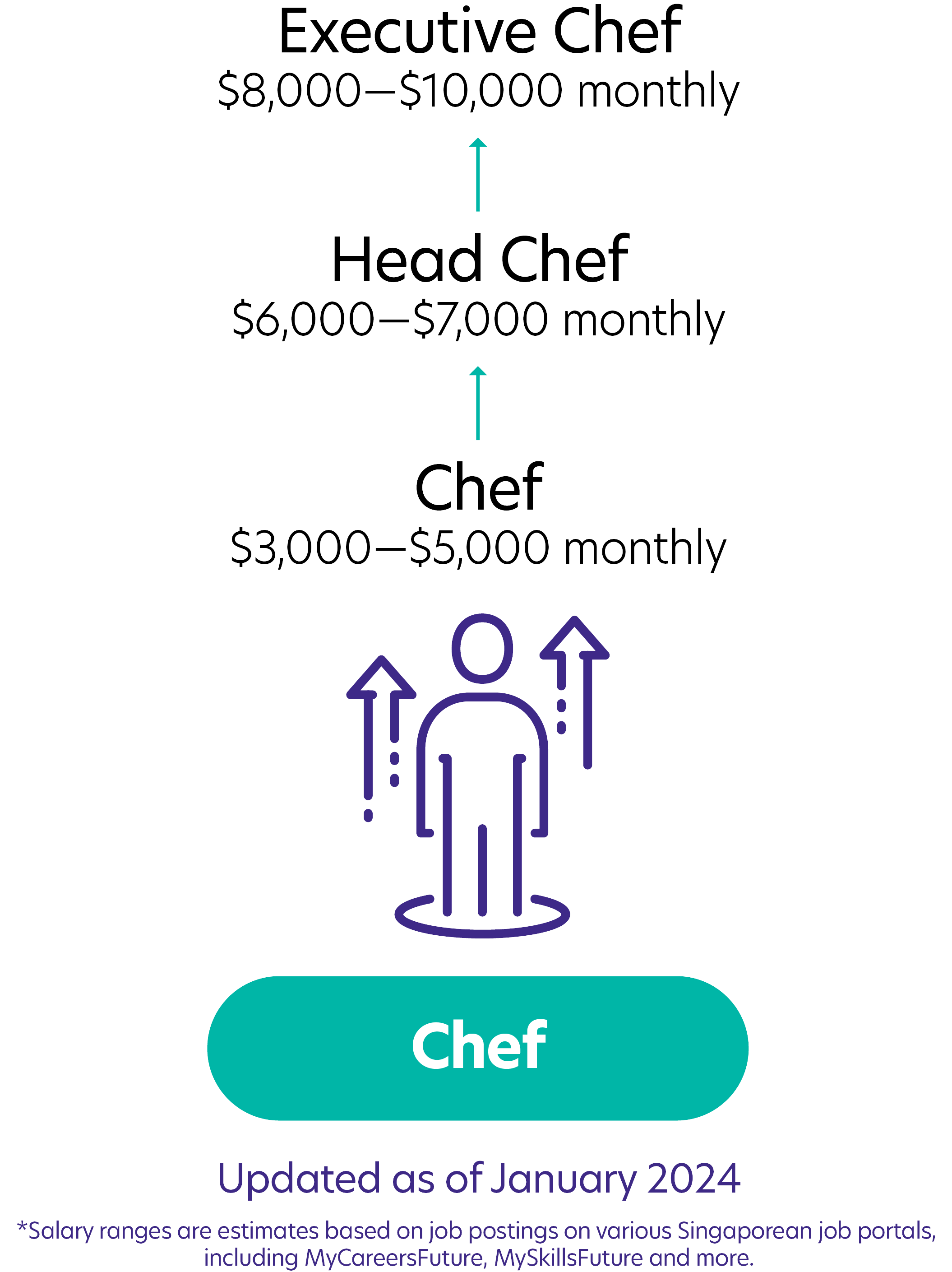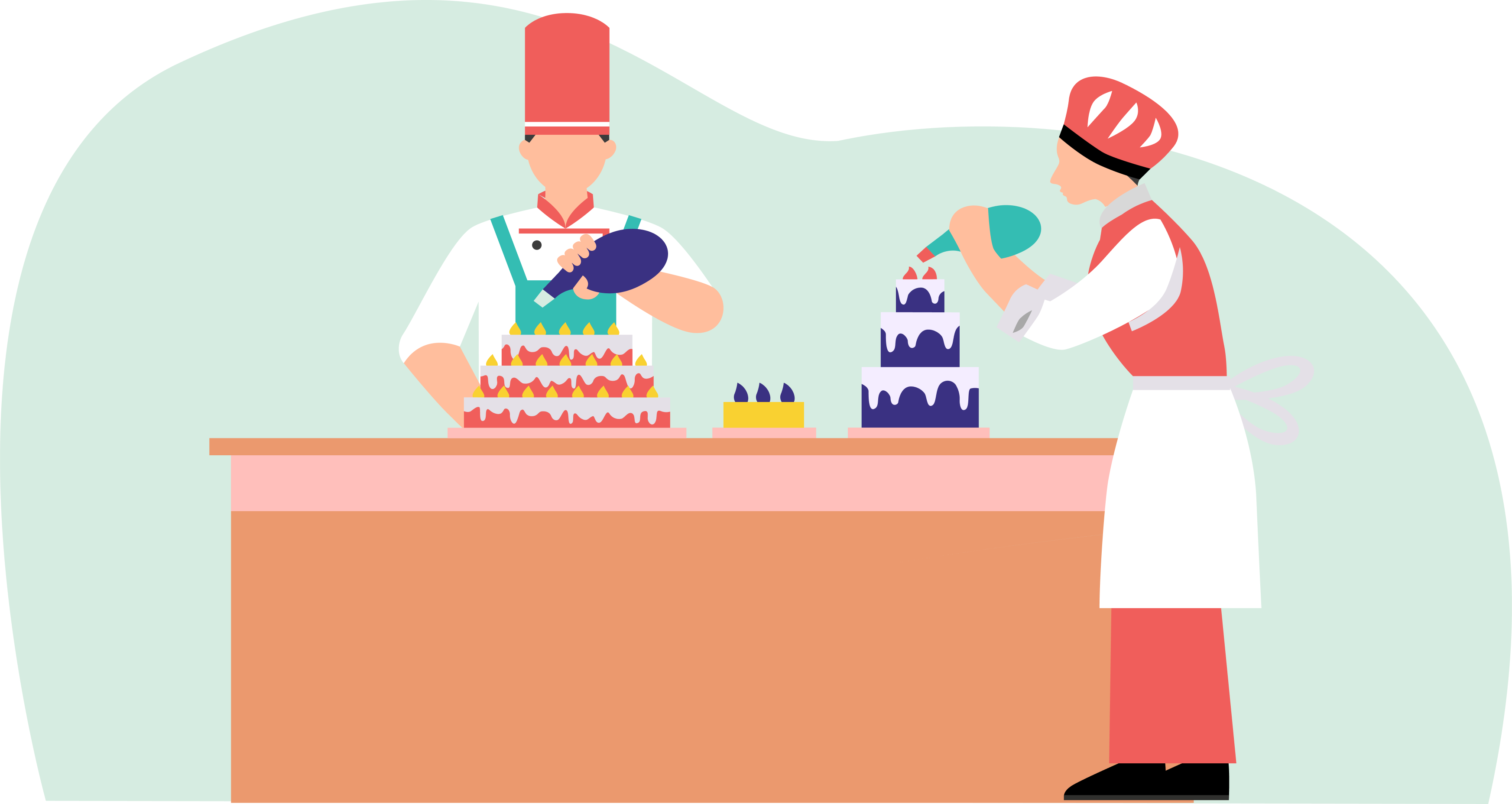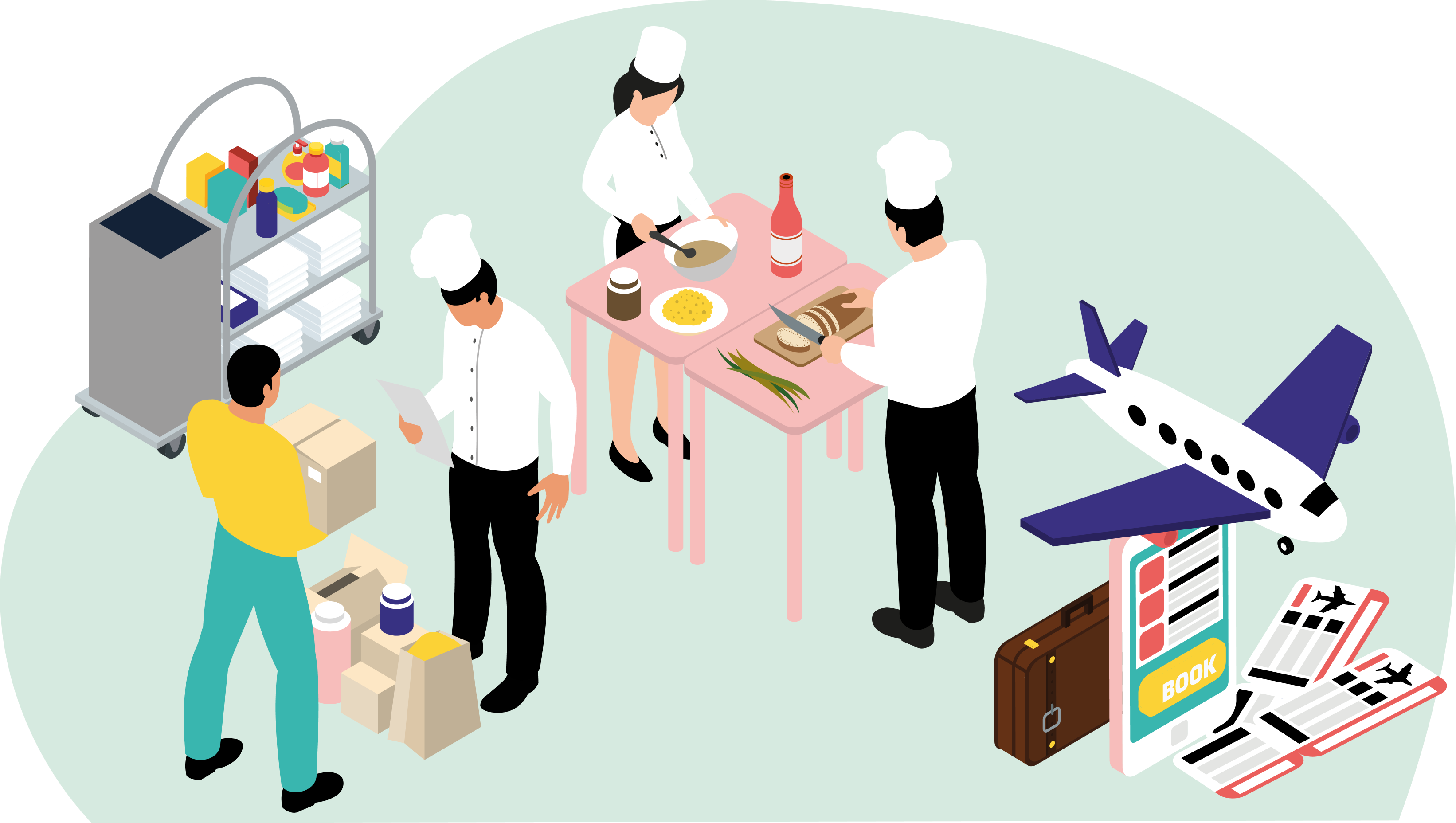
Chefs manage kitchen personnel and are responsible for making administrative decisions in the kitchen. They also review food and beverage purchases, maintain recipes, develop menus and enforce strict hygiene standards in the kitchen.
Chef Job Description
- Apply sensory analysis to food and beverage preparation and presentation.
- Develop a service recovery framework.
- Drive customer loyalty through service excellence.
- Establish business strategies for the business function.
- Manage compliance with food and beverage hygiene policies and procedures.
- Manage Culinary operations and revenue.
- Oversee cost-controlling and food-purchasing activity.
- Plan and develop menus for food service establishments.
- Prepare work schedules for kitchen staff to ensure adequate coverage during all operating hours.
- Conduct ongoing training sessions to enhance their skills and knowledge in Culinary Arts, kitchen equipment use and safety protocols.
- Conduct regular quality checks on ingredients.
Note
Different countries boast different cultures and cooking techniques, thus Chefs frequently travel the world to broaden their horizons and incorporate their newfound knowledge into the food they prepare.
What you should know about Chef jobs in Singapore
Nature of Work
You’ll need to be able to multitask & work under pressure during peak business hours to ensure your customers have the best dining experience.Key Advice
You’ll need a blend of Culinary expertise, creativity, leadership and management skills to excel in this role.-
Entry RequirementsEntry Requirements
- Minimally a polytechnic diploma in Food Beverage Management/Services.
- You can complete an apprenticeship under an experienced Chef to allow for hands-on learning and practical experience in a real kitchen environment.
- You must have experience working in various roles within a kitchen, such as a line Cook or Sous Chef.
- You must also have a deep passion for cooking and the creativity to innovate and create new dishes that delight customers.
-
Possible PathwayPossible Pathway

Skills you need to pursue a Chef career in Singapore
Food Preparation
Proficient in various cooking techniques and food presentation.Food Safety
Knowledge of hygiene and safety regulations to ensure food quality.Business skills
Understanding of restaurant management, cost control, and inventory.Culinary skills
Mastery in flavour pairing, recipe development and cuisine specialisation.Communication
Effective in conveying instructions and feedback to kitchen staff.Attention to Detail
Precision in Culinary techniques and ingredient measurements.Good Memory
Being able to remember recipes, orders and customer preferences.Responsible
Accountability for kitchen operations, staff supervision and safety standards.Related Job Roles
Explore Other Programmes
Browse AllYou have bookmarked your first item!
Find it in My Discoveries with insights on your interests!










